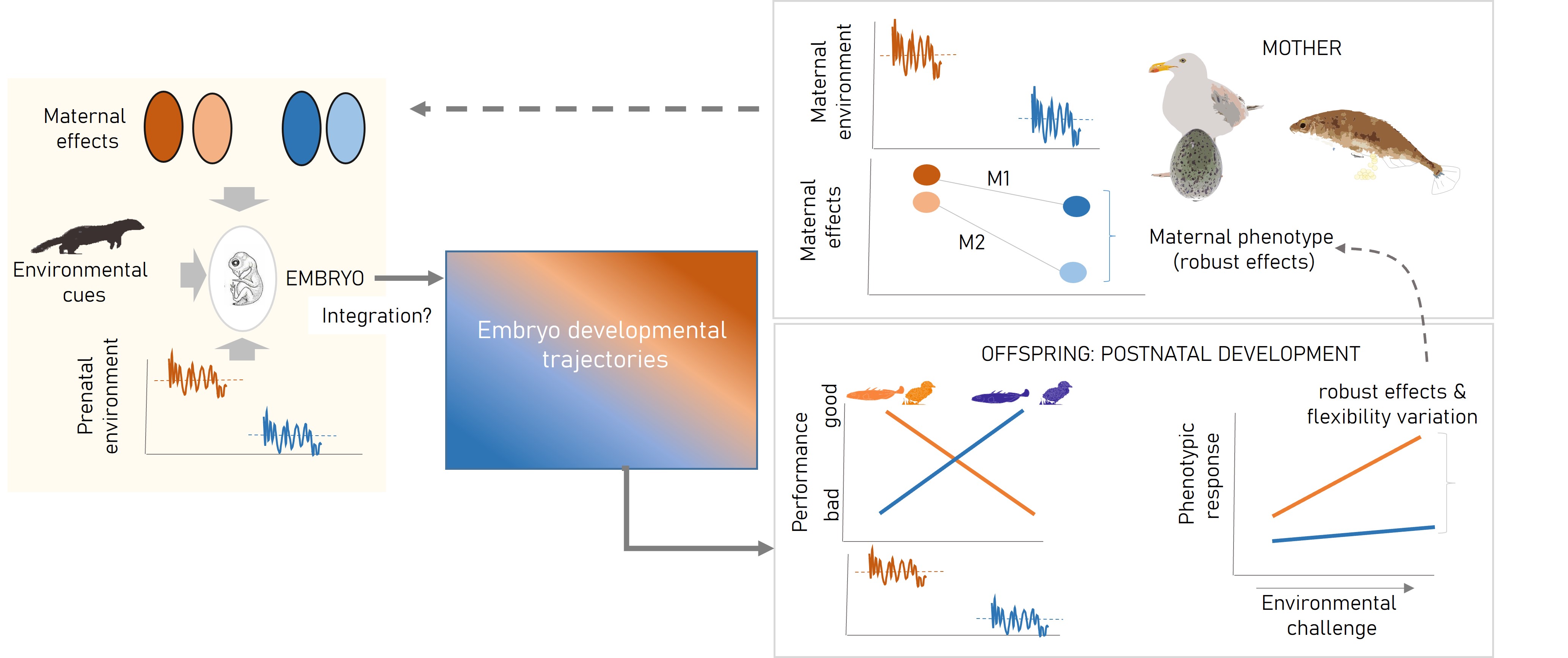Research project
DEVELIFE: Life-history development: the maternal and offspring perspectives

Keywords:
life-history,
developmental programming, embryo,
maternal effect, plasticity
In this four-year project, we provide a theoretical and experimental framework to study intergenerational processes of phenotypic programming by integrating maternal and offspring perspectives. The abilities of an organism to change its phenotype in response to different environmental conditions during the development and to maintain a persistent phenotype during the lifetime (i.e. phenotypic plasticity and robustness) may interactively determine the way it adapts to its environment. Developmental plasticity produces stable phenotypic outcomes in early life, especially the embryonic stage, during which the main control and organizational networks are established. In this process, mothers provide embryos with the primary environment, but developing embryos may also perceive external environmental inputs and respond to them. An interesting question is how a developing organism integrates maternal and external sources of environmental cues to produce matching phenotypes to future environmental conditions. Although stable and flexible phenotypic responses have traditionally been considered as contrasting properties, these two forms of plasticity probably coexist and interact.
In this project, we will use two wild vertebrates, the three-spined stickleback (fish) and yellow-legged gull (bird), to address how developing organisms integrate relevant sources of environmental information and multiple environmental constraints into their developmental trajectories and how the phenotypic outcomes influence their viability. We aim to study how changes in maternal and offspring environments induce phenotypic changes, and whether these changes are adaptive in both the maternal and offspring perspectives.
In a long-term laboratory experiments using sticklebacks, we will examine (1) how maternal phenotype develops during the mother’s early life and reproductive life in response to changing thermal conditions, (2) whether maternal state (senescence) influences theses maternal phenotypic changes, and (3) how maternal conditions experienced by the mother during her development and reproductive life (independently or interactively) induce developmental plasticity of offspring. In addition, we will explore the molecular mechanisms underlying this maternal effect process by examining how mothers change the transfer of genetic and non-genetic materials to eggs (mRNA, mtDNA, carotenoids, etc.) and how they affect offspring viability in different conditions.
In a series of field experiments using gulls, we will test (1) whether parental effects of social cues during embryo development influence the match between parents and offspring phenotypes during postnatal life, (2) whether maternal substances and early embryo exposure to social cues interactively shape the plasticity of resilient phenotypes, and (3) how the match between maternal and prenatal external cues of predator presence affects plastic responses during postnatal life. Finally, we will study the mechanisms by which the social and maternal cues induce developmental programming by exploring DNA methylation, gene expression and glucocorticoid responses.
Reference: PID2022-138503NB-I00
FINANCED BY

